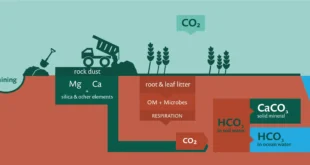- Recently, the Reserve Bank of India (RBI) announced the ‘RBI Retail Direct’ Scheme.
- In February 2021 RBI proposed to allow retail investors to open gilt accounts with the central bank to invest in Government securities (G-secs) directly.
Important points:
- Under the scheme, retail investors (individuals) will have the facility to open and maintain the ‘Retail Direct Gilt Account’ (RDG Account) with the RBI.
- Retail Investor is a non-professional investor who buys and sells securities or funds that contain a basket of securities such as mutual funds and Exchange Traded Funds (ETFs)
- A Gilt Account can be compared with a bank account, except that the account is debited or credited with treasury bills or government securities instead of money.
- RDG accounts can be opened through an online portal provided for the purpose of the scheme.
- The online portal will give registered users access to primary issuance of G-secs and access to Negotiated Dealing System-Order Matching system (NDS-OM).
- The RBI introduced the NDS-OM in August 2005. It is an electronic, screen based, anonymous, order driven trading system for dealing in G-secs.
- It is a one-stop solution to facilitate investment in G-secs by individual investors.
- RBI seeks to democratize the ownership of government debt securities beyond banks and managers of pooled resources such as mutual funds.
Government Security
- A G-Sec is a tradable instrument issued by the Central Government or the State Governments.
- It acknowledges the Government’s debt obligation. Such securities are short term (usually called treasury bills, with original maturities of less than one year- presently issued in three tenors, namely, 91 day, 182 day and 364 day) or long term (usually called Government bonds or dated securities with original maturity of one year or more).
- In India, the Central Government issues both treasury bills and bonds or dated securities while the State Governments issue only bonds or dated securities, which are called the State Development Loans (SDLs).
- G-Secs carry practically no risk of default and, hence, are called risk-free gilt-edged instruments.
- Gilt-edged securities are high-grade investment bonds offered by governments and large corporations as a means of borrowing funds.
SOURCE: THE HINDU,THE ECONOMIC TIMES.MINT
 Chinmaya IAS Academy – Current Affairs Chinmaya IAS Academy – Current Affairs
Chinmaya IAS Academy – Current Affairs Chinmaya IAS Academy – Current Affairs



